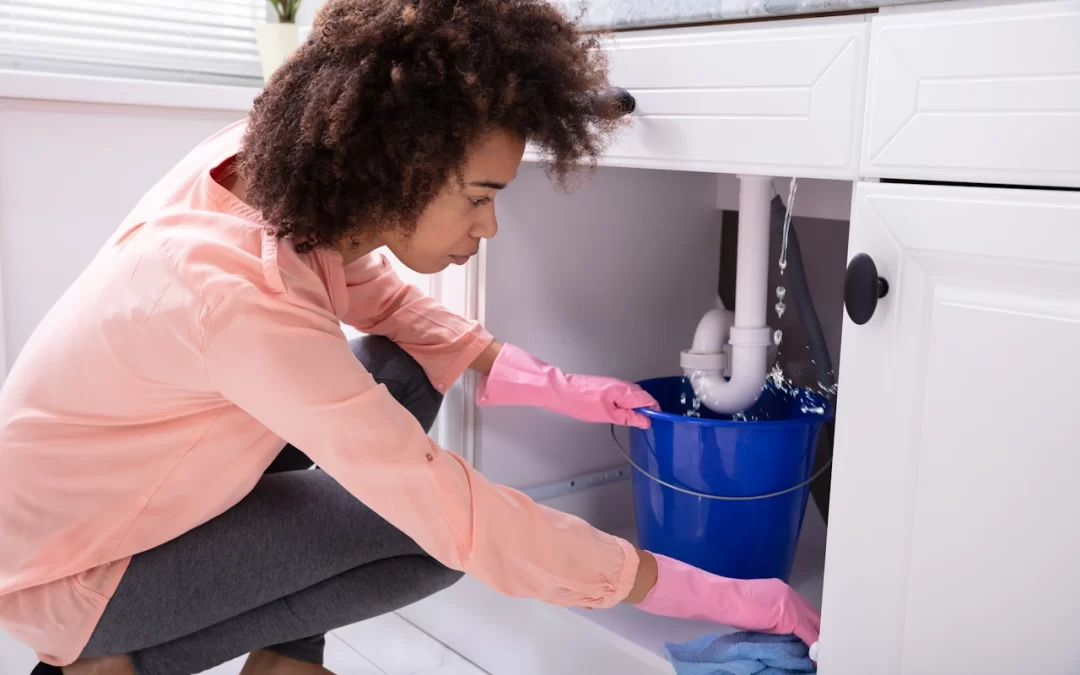With the right knowledge and a proactive approach, you can keep your plumbing in top condition, preventing costly repairs and inconveniences down the line. Here’s a beginner’s guide to home plumbing maintenance with tips to help you keep the water flowing smoothly and avoid problems.
Plumbing Maintenance Tips for Your Home
Schedule Regular Inspections
Make it a habit to inspect your plumbing system regularly. Check for leaks under sinks, around toilets, and in the basement or crawl space. Inspect the washing machine hoses for cracks. Look for signs of corrosion or rust on pipes and fixtures. Early detection of problems can prevent them from escalating into major issues.
Mindful Usage of the Plumbing
Be mindful of how you use water in your home. Small changes in water usage habits can impact your plumbing system’s longevity. Never flush anything other than toilet paper down the toilet, and use drain strainers to catch hair and debris in sinks and showers. Repair dripping faucets promptly to prevent water waste and potential damage.
Protect Pipes in Cold Weather
If you live in an area prone to freezing temperatures, protect your pipes during the winter months. Insulate exposed pipes with foam insulation to prevent them from freezing and bursting. Disconnect and drain outdoor hoses and install frost-proof outdoor faucets.
Home Plumbing Maintenance: Drain Care
One of the most common plumbing problems in a home is clogged drains. Be careful of what you’re putting down the drain to avoid blockages. Never pour grease, coffee grounds, or food scraps down the kitchen sink, and use a drain trap in the shower to catch hair and soap residue.
Maintain the Water Heater
Your water heater is an important home appliance. To ensure it operates efficiently and lasts longer, flush the tank annually to remove sediment buildup. Check the temperature and pressure relief valve regularly and replace it if necessary. Contact a professional plumber for inspection and repairs if you notice corrosion or leaks.
Know Your Shut-Off Valves
Familiarize yourself with the location of your home’s main water shut-off valve. In a plumbing emergency, such as a burst pipe, quickly shutting off the water supply can prevent extensive water damage. Additionally, learn the location of individual shut-off valves for sinks, toilets, and appliances and verify they work as designed.
Schedule Professional Inspections for Home Plumbing Maintenance
While regular DIY maintenance is essential, scheduling professional plumbing inspections at least once a year is also important. A licensed plumber can identify issues that may not be visible to the untrained eye and recommend preventive maintenance or repairs. Professional inspections save you money in the long run by preventing major plumbing emergencies.
With these seven tips for home plumbing maintenance, you can keep your home’s plumbing system operating smoothly and efficiently. Proactive maintenance is key to preventing costly repairs and water damage. Enjoy peace of mind knowing your home’s plumbing is in good condition.
FAQs
How can I maintain my garbage disposal to prevent clogs and odors?
Avoid putting fibrous or starchy foods, grease, or large food particles down the drain. While using the disposal, run cold water and periodically grind ice cubes and citrus peels to help clean and freshen the appliance.
Are there DIY solutions for minor plumbing issues, such as a clogged drain?
Yes. You can use a plunger, plumbing snake, or a mixture of baking soda and vinegar to clear minor clogs. However, if these methods don’t work or you’re dealing with a recurring issue, it’s best to contact a professional plumber for assistance.
Is it necessary to install water-saving fixtures in my home?
Installing water-saving fixtures, such as low-flow toilets and aerated faucets, helps conserve water and reduce utility bills. These fixtures maintain performance while using less water, making them an environmentally friendly and cost-effective choice for your home.
Can I perform plumbing maintenance tasks myself, or should I always hire a professional?
While homeowners can do some plumbing maintenance tasks with basic skills, others require the expertise of a professional. It’s essential to assess your comfort level, the complexity of the task, and your ability to safely handle plumbing issues before deciding whether to DIY or hire a professional.
What are signs I may have a plumbing issue in my home?
Common signs of plumbing problems include low water pressure, slow draining sinks or tubs, foul odors from drains, unusually high water bills, and water stains on walls or ceilings. If you notice any indications, address them promptly to prevent further damage.
HomeVantage Home Inspections provides inspection services to homebuyers and sellers in Northern New Jersey. Contact us to schedule an appointment.

